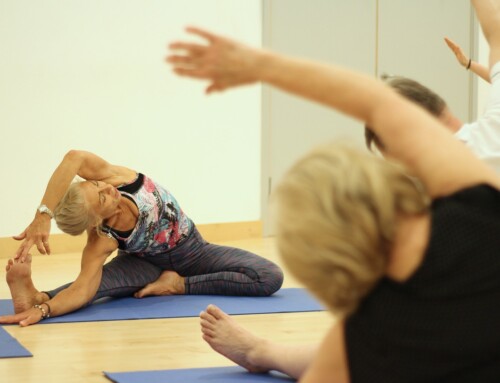When a parent has dementia or Alzheimer’s disease, their adult children may find it challenging to maintain a safe and engaging environment at home. It is a difficult scenario, especially if family caregivers also have full-time careers. From nutritional concerns to trouble with wandering, caring for a dementia patient can take all of someone’s time and energy. It is not uncommon for a caregiver to determine that the family and the patient should explore professional memory care as an alternative.

Dementia care centers like A Banyan Residence meet the resident where they are in their journey, evaluating their current capabilities and developing a life plan that encourages engagement and their best possible quality of life. These centers also offer a secure living situation that permits independence and freedom while minimizing the risk of wandering or sundowning. However, adult children may experience guilt about moving a parent with memory loss to a professional care center. It can be easier on everyone when they can participate with their loved ones in learning about how the move will be beneficial for everyone.
4 Steps to Long Term Memory Care
Moving a loved one into a memory care facility can be stressful for everyone, but these tips can help make a move much more manageable.
- Create a familiar space: For people living with memory loss, everyday objects can be instrumental in minimizing anxiety, confusion, and fear. Contemplate the items your mom or dad sees most frequently in their home. Perhaps this means placing a favorite blanket on their comfortable chair, framing a nostalgic picture of their spouse or grandchildren, or providing a well-known book or journal. Recreating a familiar environment in their long-term care residence will go a long way to making them feel more at home. Think about their habits – if they always placed their shoes by the door, do the same here. If they had a specific nightstand next to their bed, bring it along. Situate mementos nearby and within their sight (and reach.)
- Choose the right time of day: Those with Alzheimer’s generally have “good” and “bad” times of the day. Identify their most coherent, clear thinking time of the day to move them to a new residence. The morning hours are typically the easiest time for most dementia patients, especially those who experience sundowner’s syndrome. If it is at all possible, enlist help from a professional moving company (or other family members) to move their belongings while you keep them engaged. The move will be easier if they do not have the physical or emotional stress of having to do it themselves. Once the room or apartment is set up familiarly, you can bring them in. Be sure to place something familiar on their front door so they will recognize home.
- Make a memory board: When a senior has dementia, it may be difficult to communicate verbally, and the onsite team may find it challenging to get to know them personally. Designing a memory board or scrapbook with photos, names, and descriptions will help to bridge the gap. Share the pictures and stories with the center’s team ahead of time so they can familiarize themselves with your loved ones before they move into the facility. Keep the memory board someplace in their room to more easily share it with staff and visitors. Not only will this tool assist your loved ones in remembering and quelling confusion, but those who interact with them daily have invaluable details to stimulate engaging conversations.
- Music is therapeutic: Most people have discovered that music is beneficial in calming anxiety and encouraging memories – even for dementia patients. When transitioning to a long-term care facility, try playing some of their favorite music softly in the room. This can help reduce the anxiety your loved one is probably feeling, even if they cannot put into words their stress. Create a playlist with a few of their all-time favorite musicians, and ask the staff to play it when the patient needs reassurance.
If you have additional questions about memory care in The Villages, call A Banyan Residence today.







